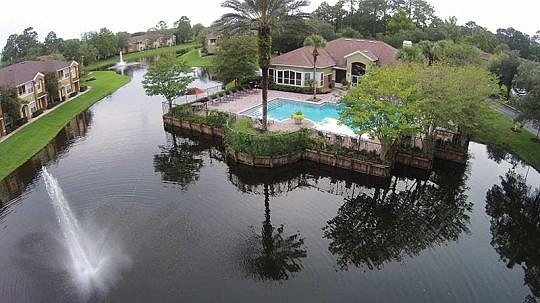
The view is better from up high.
It’s what makes tourists climb lighthouse towers and airplane passengers choose window seats.
Soon, it could be the edge that gets a for-sale home into the hands of a new owner.
The Federal Aviation Administration on Sunday released a set of proposed rules for the commercial use of drones — something the real estate industry has been waiting for.
“We were existing in this regulatory and legal gray area,” said Stephanie Spear, commercial regulatory policy representative for the National Association of Realtors. “This rule is the beginning of clarity.”
The FAA’s proposal would allow drones weighing up to 55 pounds to fly within sight of their remote pilots during daylight hours. The aircraft must stay below 500 feet and fly less than 100 mph.
Drones, famously used in warfare, have gotten smaller and cheaper — the average price is now $1,000. But, regulations over how they may be used have not kept up.
Hobbyists are allowed to operate drones, as long as they keep their crafts below 400 feet and away from airports. The FAA also has issued a handful of waivers to companies.
But otherwise, the agency considers drones prohibited for commercial use.
Despite the restrictions, aerial photos of homes appear regularly on Zillow.
One drone pilot challenged a fine imposed by the FAA for filming a commercial. The court case eventually settled.
NAR advises Realtors against using drones for photographing properties unless they have a waiver from the FAA.
But, the group has also met with the FAA to push for a framework in which drones can be used legally. The national association plans to give feedback on the draft regulations during a 60-day comment period, Spear said. It’s expected to take 18-24 months for the final rules to be implemented.
Sally Suslak, president of the Northeast Florida Association of Realtors, said drones were on the agenda at a Florida Realtors’ January meeting in Orlando.
“People from South Florida are really hot to use them,” she said. “With high-rise condos, it’s easier to market the view.”
Suslak said she probably won’t try drones in her own business, and she noted there will be restrictions around Jacksonville’s three airports and two Navy bases.
Still, she’s sure there are Realtors in Jacksonville who will get on board.
“It depends on what you’re selling, for example, a developer showing a large tract of land,” she said. “It would also be a good way to show the diverse nature of the city — what’s grown up on each side of the St. Johns River and the mix between commercial and residential.”
John Murphy sees the demand firsthand for drone photography in the Jacksonville real estate community. He is the owner of Veteran Drones, a local media company that specializes in aerial photography.
“Google Maps will only do so much,” he said. “Getting an aerial photo for any property gives it a competitive edge.”
Murphy has done photo shoots for customers at all levels of the real estate industry, but primarily for Realtors.
“If a property has great outdoor features and is not covered by trees, it’s a great opportunity for an aerial shot,” he said.
Murphy said the FAA’s proposed rules are actually less strict than ones imposed by his insurance company. The absence of regulations creates a climate where some believe drones can’t be used and others believe they can.
“(The FAA announcement) is great news. It moves things forward for the Realtors,” he said.
The restrictions include:
• Aircraft must weigh less than 55 pounds
• Craft must remain visible to the operator
• Daytime use only
• Maximum airspeed of 100 mph
• Operators must be at least 17 years old and pass an FAA-approved aeronautical knowledge test for certification
• Must yield right of way to other aircraft
(904) 356-2466